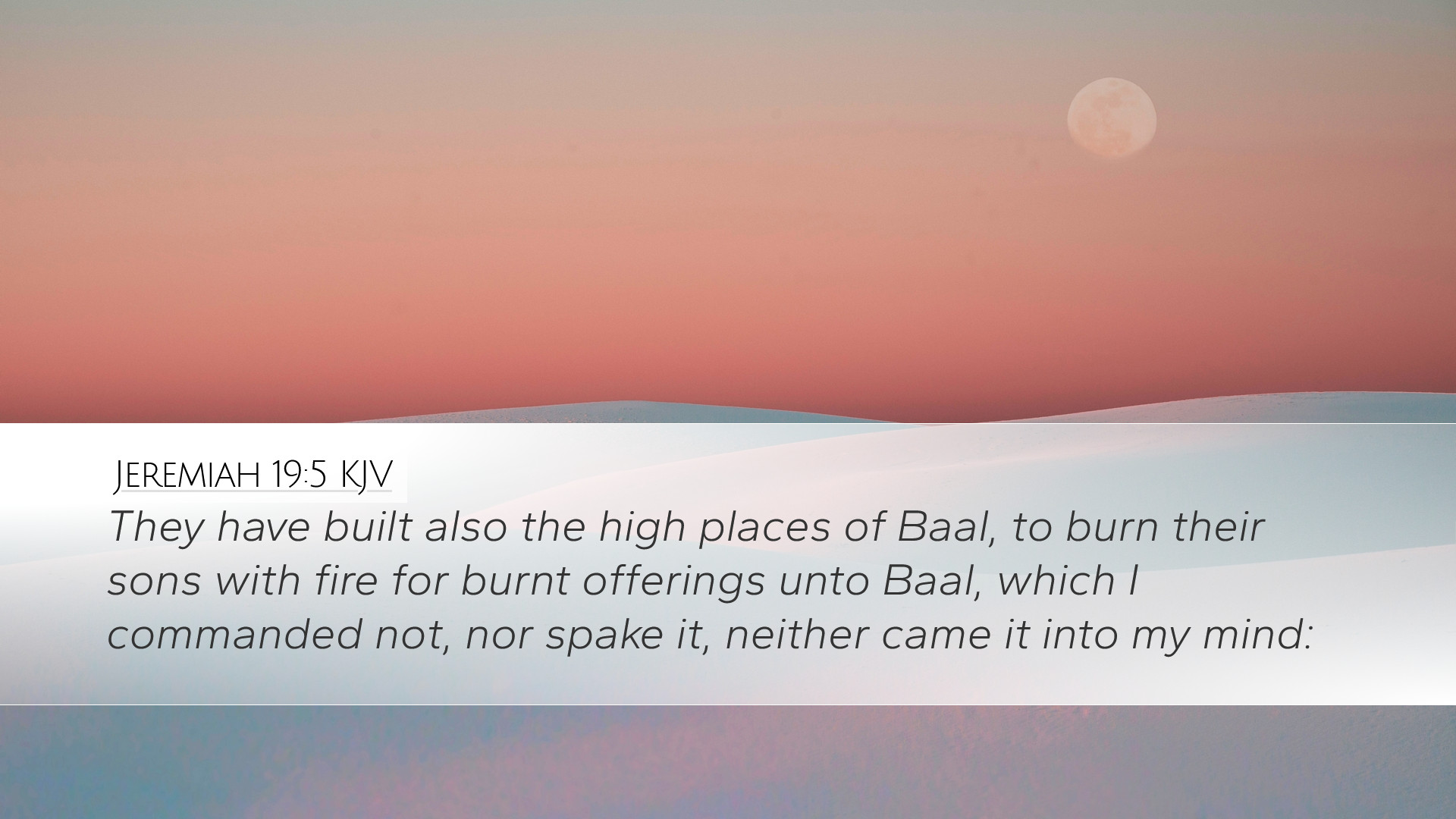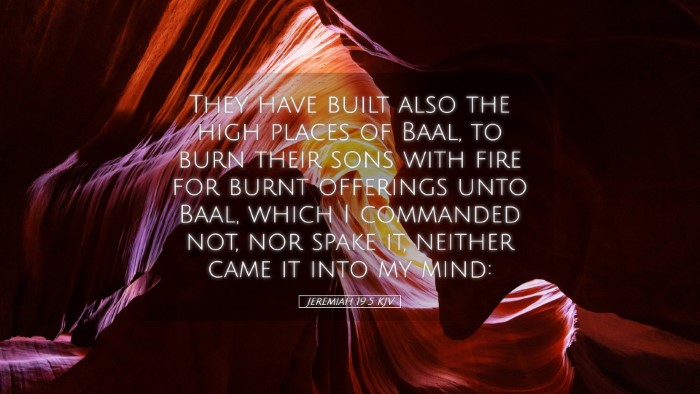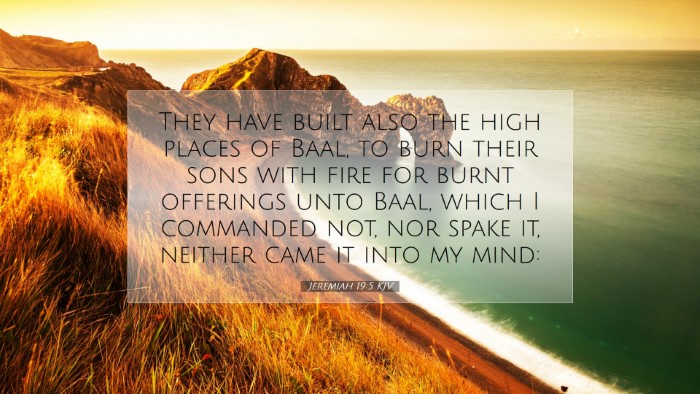Commentary on Jeremiah 19:5
Jeremiah 19:5 states: "They have built the high places of Baal, to burn their sons in the fire for burnt offerings unto Baal, which I commanded not, nor spake it, neither came it into my mind." This verse encapsulates a profound indictment against the idolatrous practices of Judah. In the following commentary, we will explore the insights of several public domain scholars, including Matthew Henry, Albert Barnes, and Adam Clarke.
Contextual Background
This verse is situated within a prophetic message from Jeremiah, which confronts the sinfulness of the people of Judah. The high places mentioned were sites where Canaanite worship, particularly the worship of Baal, was practiced. This form of idolatry involved heinous practices, including child sacrifice, which is the focal point of this scripture.
Commentary Insights
Matthew Henry's Commentary
According to Matthew Henry, this passage illustrates the extreme depravity of the people of Judah. He notes that the act of burning children as offerings to Baal was not only a transgression against God's commandments but a sign of a heart turned far away from the true worship of Yahweh. Henry emphasizes that God did not command such practices; they arose from the imaginations of a corrupt society. He highlights the moral decline in the nation, suggesting that their actions were rooted in ignorance of God's true nature and commands.
Albert Barnes' Commentary
Albert Barnes elaborates on the historical and theological implications of this verse. He points out that the worship of Baal involved the most horrific acts of idolatry, which were in direct violation of the covenant between God and Israel. Barnes stresses that such practices were a departure from the covenant laws given to Moses, focusing on the fact that the worship of Baal included immoral rites that dishonored God’s holiness. Barnes also underscores that the mention of this practice "never came into God's mind" illustrates the utter abhorrence that God feels towards such corruption.
Adam Clarke's Commentary
Adam Clarke offers a detailed analysis of the significance of the high places and the implications of the sacrifices made there. He notes that the act of burning children signifies a deep-rooted spiritual decay among the people. Clarke interprets the phrase "which I commanded not" as indicative of God's desire for pure worship that is aligned with His character, contrasting it with the abominable practices of the Canaanites. He emphasizes that such grievous sins provoke God's anger and ultimately lead to divine judgment.
Theological Implications
The implications of Jeremiah 19:5 are profound for contemporary readers. The text urges a reflection on the nature of true worship and the dangers of syncretism—blending true faith with pagan practices. It calls the faithful to examine their own hearts and communities for similar corruptions that might lead away from the worship of the One True God.
Idolatry and Its Consequences
This verse serves as a warning against idolatry, encompassing not only physical idols but also any entities or ideologies that take precedence over God in the lives of believers. Matthew Henry reminds us that idolatry corrupts both individual and corporate worship, leading to dire consequences. Such reflections are particularly relevant for pastors and theologians as they consider the contemporary forms of worship that may exist within the church today.
The Severity of Sin
Jeremiah 19:5 starkly illustrates the severity of sin, especially the sin of shedding innocent blood. In light of this, Albert Barnes emphasizes the necessity for repentance and an acknowledgment of such transgressions before God. The passage underscores that what might seem inconsequential to human judgment is deeply detestable in the eyes of God.
The Nature of God’s Commands
The phrase "nor spake it, neither came it into my mind" emphasizes God's righteousness and the clarity of His commandments. Adam Clarke highlights that God's commands are not arbitrary but are deeply rooted in His character, which seeks the good of His people. This calls for believers to align their actions with God’s desires and commands, making way for genuine worship and righteous living.
Concluding Thoughts
Jeremiah 19:5 poses significant challenges and questions for modern Christians. Reflecting on the insights of Henry, Barnes, and Clarke provides a framework for understanding how the ancient practices of idolatry relate to the modern world. The implications of this verse urge believers to call upon God for mercy, seek true worship, and turn from any practices that do not glorify Him. Ultimately, the passage serves as a reminder of God's unchanging nature and the seriousness with which we must approach our covenant relationship with Him.


